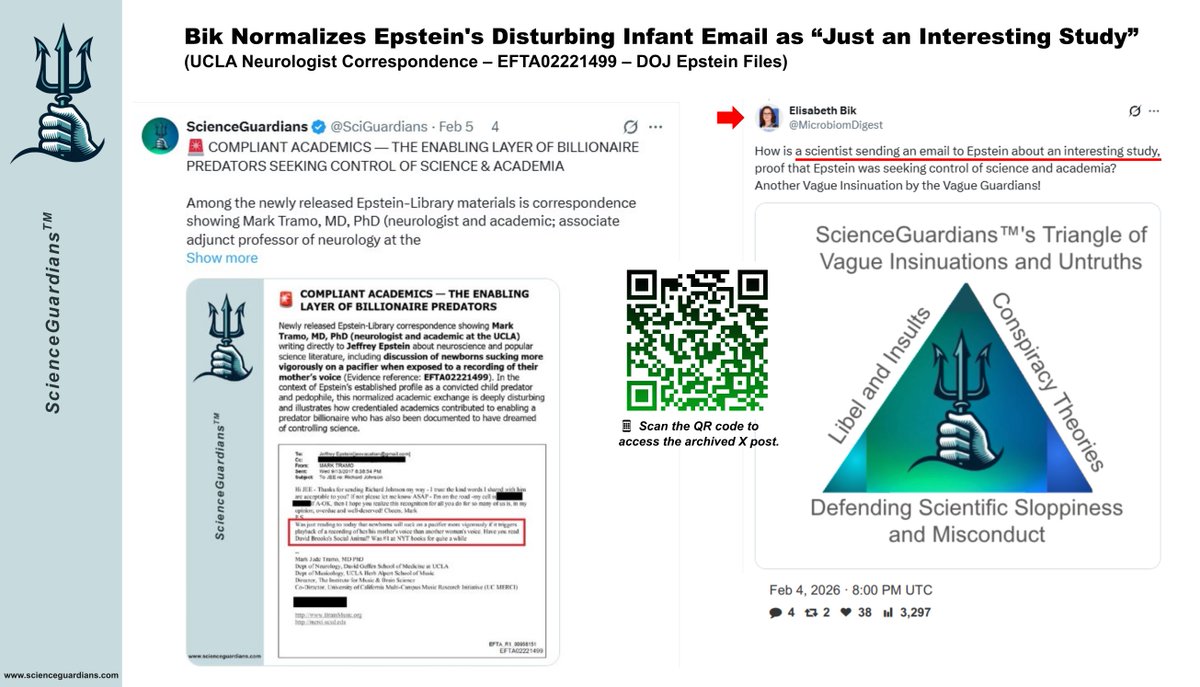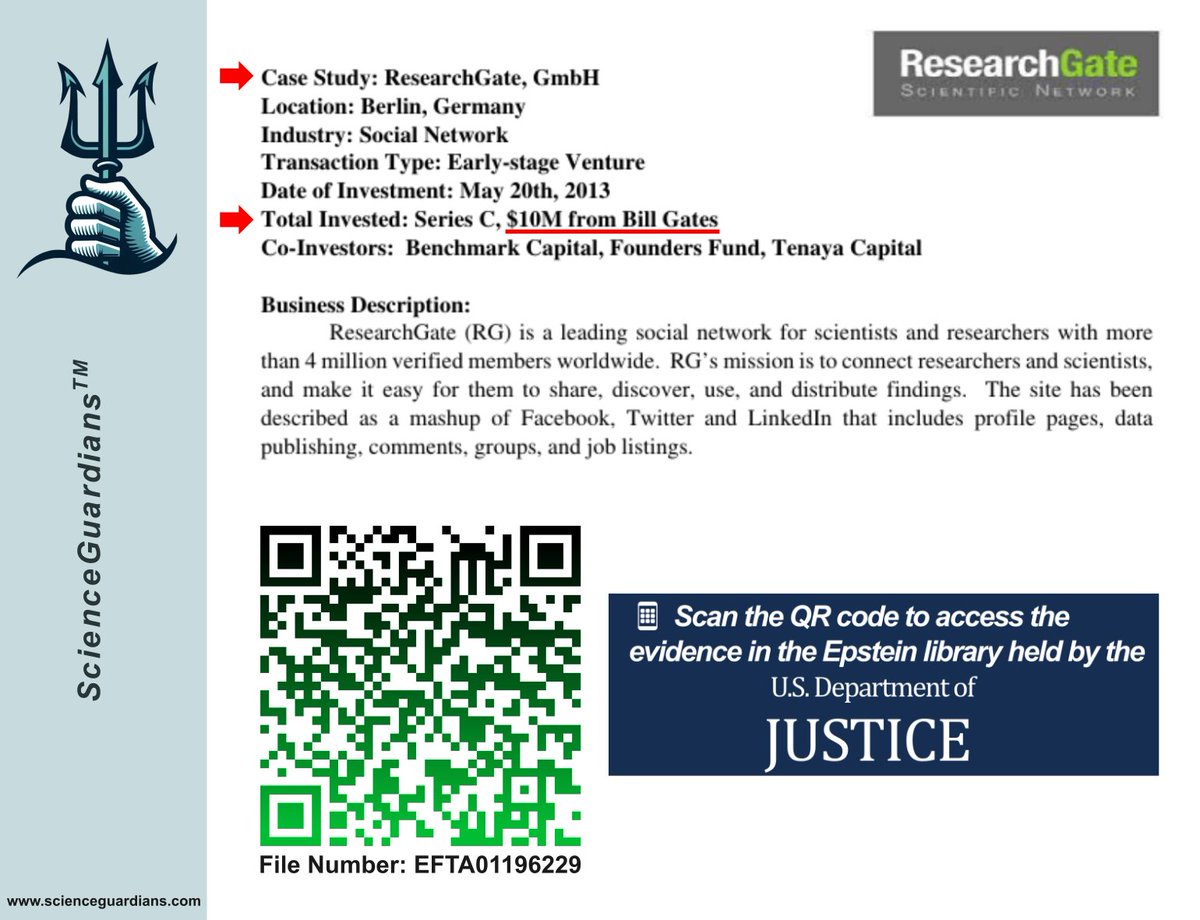
Empowering academia with tools, training & transparency 🌐 First fully verified journal club & post-publication peer review 🔎 https://t.co/bRoLuhewZu | Nonprofit
2 subscribers
How to get URL link on X (Twitter) App




 2/14 What is ResearchGate exactly?
2/14 What is ResearchGate exactly? 

 "In the age of generative AI, the replication crisis, and ‘publish or perish’ pressure—amplified by growing hostility to academia—the temptation to cut corners has never been stronger."
"In the age of generative AI, the replication crisis, and ‘publish or perish’ pressure—amplified by growing hostility to academia—the temptation to cut corners has never been stronger."

 🔱 All of the evidence ScienceGuardians™ has exposed consists of "self‑admissions" and "self‑implications" by the individuals involved. These are well archived and, at any time, can be verified by any unbiased third party. We have simply laid out the existing dots — it is up to each member of the academic community to connect them.
🔱 All of the evidence ScienceGuardians™ has exposed consists of "self‑admissions" and "self‑implications" by the individuals involved. These are well archived and, at any time, can be verified by any unbiased third party. We have simply laid out the existing dots — it is up to each member of the academic community to connect them.

 Exposing Coordinated Attacks on the Scientific Community by Two Key Perpetrators of the PubPeer Network
Exposing Coordinated Attacks on the Scientific Community by Two Key Perpetrators of the PubPeer Network